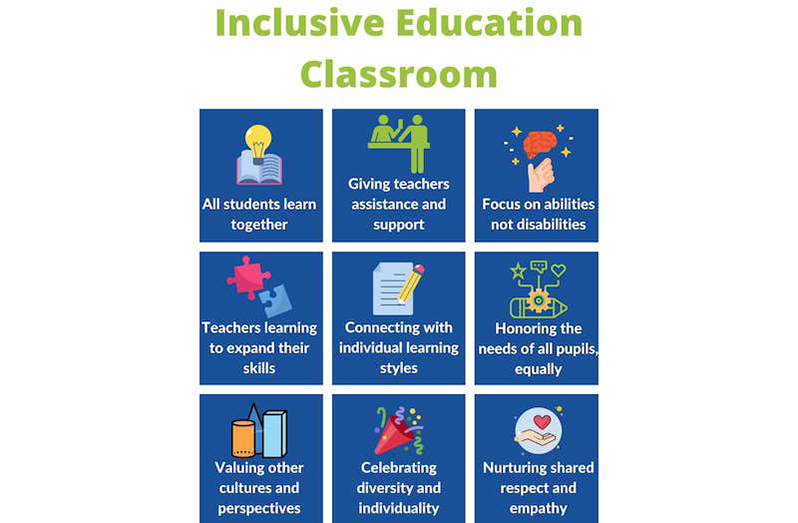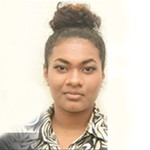THE right to education is a universal human right. Every human being, regardless of gender, creed, background, or social status, deserves to receive an education. In the context of Guyana, Education is provided mostly by the state. It is considered free, although this does not apply to additional costs such as transportation fees or materials. There’s no annual tuition or hefty school fees to receive education in Guyana.
In fact, I’m grateful for this opportunity, especially in a developing country. However, I’d like to use this opportunity to highlight the need for further development related to inclusivity in educational systems. Inclusive education is a term used to describe the acceptance, inclusion and development of educational systems that provide opportunities and support for every student despite their differences. Inclusive education includes development in classroom designs, inclusive programmes, and curricula and providing access to education for all children.
Inclusive education often speaks to including children with disabilities in educational institutions and programmes. The concept does not take children living with disabilities (or any other differences) away from regular classrooms. Instead, Inclusive Educational Programmes are created to include every child, regardless of their pace of learning or physical/ mental abilities. Sometimes, children may need to spend time outside the classroom to engage in other aspects of enhancing their capabilities, such as physical therapy sessions.

It’s as if children with disabilities or any other situational challenges are put into a category of limitations. Who are we to say children with disabilities cannot learn as any other child? Who are we to let children who speak another language stay home simply because they don’t understand the majority language? While the concept of inclusive education appears to be ideal, it has no easy application. The teachers will need to be retrained, the buildings will have to be renovated, the families and communities will need to be sensitised and new content or materials will have to be introduced. It also means that we should remove obstacles that prohibit ALL children from learning effectively, such as ineffective policies.
This requires a lot of investment, effort and evaluation. Nonetheless, I look forward to further improvements in policy reforms and changes towards inclusive education in Guyana. We have a chance to change the way our children learn, and, as we develop further, it’s only fair that we invest deeper into every single child in a classroom setting. We should not only apply a generalist approach towards learning experiences and opportunities for children. I urge all educators and teachers to adopt an inclusive mindset when teaching children across Guyana. Unfortunately, many children are not diagnosed with disabilities or some parents do not even understand that their child can still attend school even after a diagnosis.
As such, I am pleading with you all to do your personal research and understand more on what this concept means and how you can adopt some of its methods in your classroom setting. You do not have to wait on policy reforms or adaptations to be an inclusive educator. Every child is different, and every child will not be able to learn in the same way. Nonetheless, every child should be able to have access to education—regardless of what they look like or who they are.



.jpg)











